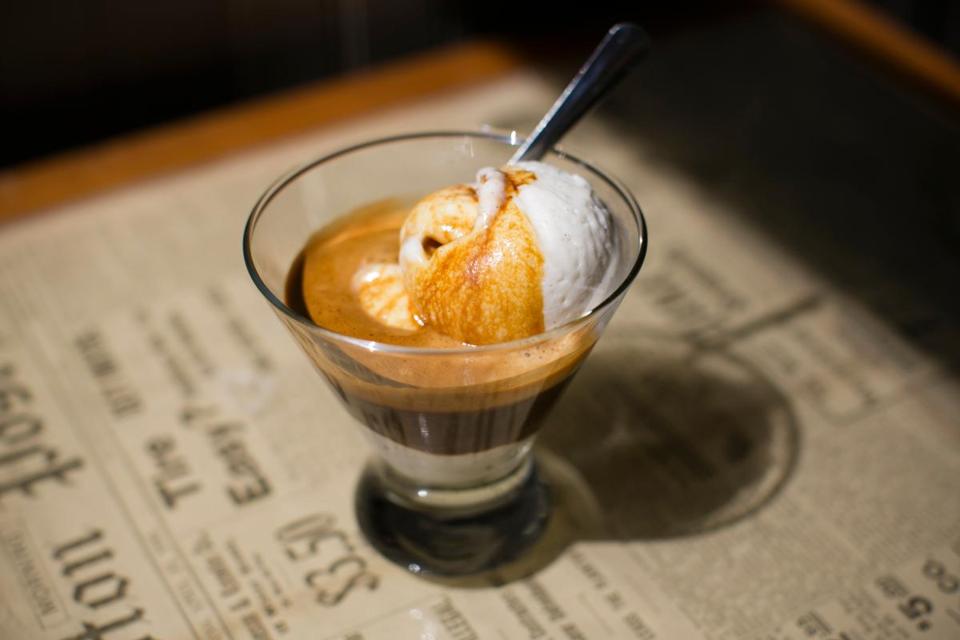When you talk about taste, do you have the smell you should have and the taste you shouldn't have?

For professional baristas, please follow the coffee workshop (Wechat official account cafe_style)
Should the taste be stable?
After the boutique coffee, it seems that the unstable taste has become taken for granted. Every batch of beans every year, even every time the beans are baked, will not be the same. We can only improvise at the moment and so on. It seems that as long as we touch the cup test report of foreign countries slightly, we will feel right, and the rest will be pushed to the weather for various reasons, such as harvesting, baking, brewing conditions and equipment.
If this is the case, then why do you need the origin label?
If this is the case, then why do you need the origin label?
If this is the case, then why do you need the origin label?
What kind of taste a bean should have is determined from its birth. The most important thing in your baking is to show that innate taste, not sour or not sour, bitter or not bitter, sweet or not sweet. Let alone bake Yega into Kenya, geisha, bake berries into caramel cocoa nuts, and even the taste on these cups should not be the first!
What should a cup of coffee taste like? What about the taste that doesn't belong to coffee? It is not so-and-so master, the so-and-so champion has the final say! But the bean itself can talk, and then do you understand?
What is the first thing you see when you come into contact with raw beans?
What is the significance of producing areas?-Wind and soil conditions-Geology, climate, water flow. Does the land smell? Does the water smell? Will the climate affect the taste?
And number two? Do different treatments have different tastes?
And the third? Varieties, do different varieties have different tastes?
Are these three basic sources of flavor clearly written on the volume label? Then does cross-multiplication evolve many different changes?
Can I bake casually?
Then what kind of taste does not belong to coffee?
The first is the smell of the machine (material). Can you taste probat? Can you drink the smell of Fuji? can you drink the smell of diedrich? Can you drink the smell of the Yang family? Can you drink the smell of a bunch of small steel guns (steel cups)?
The second is the smell of the heat source. Heating tube, infrared, charcoal, etc. Can you drink it?
The third is the smell caused by baking mistakes. Too bitter, too sour, coke, charcoal, astringent, fishy, smoke, oil and so on can you drink it?
Fourth, the taste of reprocessing, such as additives in the post-processing process of raw beans, post-processing and post-baking, such as sugar, cream, flavor, etc.--
Fifth, the taste of improper preservation is not the expiration date.
Think about it, when you talk about taste, do you have the smell you should have and the taste you shouldn't have?
Important Notice :
前街咖啡 FrontStreet Coffee has moved to new addredd:
FrontStreet Coffee Address: 315,Donghua East Road,GuangZhou
Tel:020 38364473
- Prev

On Fine Coffee: is the quality of raw beans important or technology important?
Professional barista communication Please follow the coffee workshop (Wechat official account cafe_style) I spend a lot of time writing words that are almost dismantling other people's platforms for one purpose-[coffee is not just what you think it is.] Most of the time we are immersed in the joy of narcissism, such as the word "boutique coffee" on the signboard, when we open the shop every day.
- Next

Starbucks' largest baking plant in the world will open in Shanghai on December 5.
Professional baristas Please follow the Coffee Workshop (Wechat official account cafe_style) in May this year, Starbucks (feature Reading) China announced that after its headquarters in Seattle, Roastery, the world's second roaster store, will open in Shanghai by the end of 2017. Yibang dynamic Network learned from people familiar with the matter that the much-anticipated store has been finalized on December 12 this year.
Related
- What is the difference between Indonesian Sumatra Mantinin coffee and gold Mantinin? How to distinguish between real and fake golden Mantelin coffee?
- What does bypass mean in coffee? Why can hand-brewed coffee and water make it better?
- Unexpected! Ruixing Telunsu lattes use a smoothie machine to foam milk?!
- % Arabia's first store in Henan opens into the village?! Netizen: Thought it was P's
- Does an authentic standard mocha coffee recipe use chocolate sauce or powder? Mocha Latte/Dirty Coffee/Salty Mocha Coffee Recipe Share!
- What is the difference between Vietnam egg coffee and Norway egg coffee? Hand-brewed single product coffee filter paper filter cloth filter flat solution!
- What is the difference between sun-cured and honey-treated coffee? What are the differences in the flavor characteristics of sun-honey coffee?
- How to make Italian latte! How much milk does a standard latte use/what should the ratio of coffee to milk be?
- How to make butter American/butter latte/butter Dirty coffee? Is hand-brewed coffee good with butter?
- Is Dirty the cold version of Australian White? What is the difference between dirty coffee/decent coffee and Australian white espresso?

